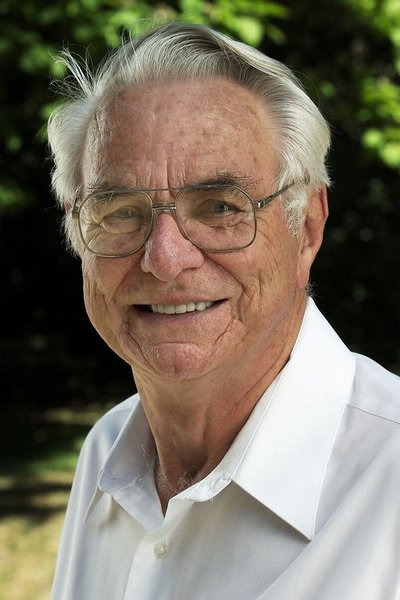December 1, 2005
Memorial service set for Jerre Noe
A memorial service has been set for Jerre D. Noe, a pioneer in electronic banking and first chair of the University of Washington’s Department of Computer Science & Engineering, who died Nov. 12 after a short battle with cancer.
The service will be Dec. 14 at 5 p.m. in the Paul G. Allen Center for Computer Science & Engineering on the UW Seattle campus. In lieu of flowers, a donation may be made to the Jerre D. Noe Endowed Professorship in Computer Science & Engineering at the UW.
Noe, who was 82, is remembered among friends and family as a strong researcher, an inspired leader and a gracious, down-to-earth companion.
“His skill was in gathering talented people and managing them so they could succeed, personally and professionally,” said his son Russ, who teaches in the Department of Mechanical Engineering. “That same talent is what I believe helped make the UW Department of Computer Science & Engineering one of the top in the world.”
The department’s current chair agrees.
“Jerre helped establish the department with a focus on technical excellence and collaboration that endures today,” said David Notkin, CSE chair. “His legacy is a major factor in our success.”
Noe was born Feb. 1, 1923, in McCloud, Calif. He earned a bachelor’s degree in electrical engineering from the University of California, Berkeley, and a doctorate degree in electrical engineering from Stanford University.
He went on to work at the Stanford Research Institute, where he led a team in the early 1950s that revolutionized the way banks do business.
At the time, banks processed checks by hand, then routed them via mail around the country. As more people began to open bank accounts after World War II, the system had an increasingly hard time keeping up. Bank of America approached the institute, looking for solutions.
“They said that if banking were going to expand, they had to go beyond hand-entry,” Russ Noe said. His father’s team designed a system that used routing numbers printed on the bottom of checks with magnetic ink and built the computers to run it, making it possible to transfer money electronically. The system survives today in the form of the “funny numbers at the bottom of your checks,” which are printed in regular ink now and read optically.
“But the routing numbers haven’t changed since the 1950s,” he said. “And that’s really rather remarkable.”
In 1968, the UW recruited Noe to lead its small computer science group, which he helped build into the department it is today. He retired in 1989, but remained an active force in molding the department’s culture, leaders there say.
But Noe’s interests extended beyond the academic. He was an accomplished skier and sailor and an avid hiker, who sailed six weeks every summer and, when he was approaching 80, trekked nearly 100 miles through the Basque region of Spain with his second wife, Margarete.
He was also an accomplished flautist who founded and performed with the Ballard Breeze quintet. He and his first wife, Mary, who died of cancer in 1982, encouraged all three of their children to learn to play. Russ Noe recalls weekly family sessions with his siblings and parents. He still plays the violin and his sister, Sherrill Roberts, is a professional cellist.
“Jerre rehearsed with the Ballard Breeze up to five weeks before he died,” Russ Noe recalled. “He was active right up to the end.”
To make a donation to the endowment, contact Ed Lazowska, 206-543-4755 or lazowska@cs.washington.edu, or go to http://noe.cs.washington.edu/



